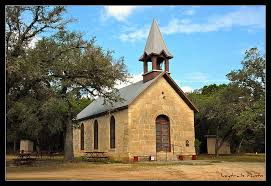 Why Should/Shouldn’t My Church Embrace Change? Part XXXVI
Why Should/Shouldn’t My Church Embrace Change? Part XXXVI
What would the world be like without electricity, telecommunications, the Internet, combustible engines, septic systems, water and sewage treatment plants, super highways, super markets, etc. We wonder how our ancestors survived without them. Technology has changed everyone’s lifestyles.
The church often associated new technology with being the devil’s tool and wanted no part of it. The Amish still hold that standard. Church services still feature hymns written by composers who have been dead for over one hundred and fifty years, an order of worship that is no different than when the Puritans landed on Plymouth Rock, and has maintained the same leadership structure for almost seventeen hundred years. I think it is safe to say that the church does not embrace change as quickly as the secular world does.
Some look at this lack of change as stability while some minimally embrace it as an attempt to be relevant with current culture. Those who have embraced wide change are called heretics, and historically they were burned at the stake! The secular world expects change; the church is threatened by it. Why? For a group that believes that “I can do all things in Christ Jesus who strengthens me,”(Philippians 4:14) why are they so threatened by change and fear of the unknown, and fail to adjust?

 If anyone should understand change, it is my generation, for we demanded it. I was raised in a well ordered church life of going to Sunday School and Church, Mid-week Prayer Service, Choir Rehearsals, and church Youth Activities weekly. Leave It To Beaver, Father Knows Best, and the Ozzie & Harriet Nelson television shows depicted the sterile, clean, family lifestyle I knew. Then came the rebellious ‘1960’s with Woodstock, hippies, the Civil Rights Movement, the Women’s Liberation Movement, segregation of schools in the South, the Viet Nam War, assassinations of political figures, and even the resignation of a U.S. President under a corruption scandal. America’s moral and ethical infrastructure was challenged at every level, yet the church remained primarily silent, not sure how to address such rapid change. They even resisted the Jesus Movement and Charismatic Movements with in their own ranks during this time.
If anyone should understand change, it is my generation, for we demanded it. I was raised in a well ordered church life of going to Sunday School and Church, Mid-week Prayer Service, Choir Rehearsals, and church Youth Activities weekly. Leave It To Beaver, Father Knows Best, and the Ozzie & Harriet Nelson television shows depicted the sterile, clean, family lifestyle I knew. Then came the rebellious ‘1960’s with Woodstock, hippies, the Civil Rights Movement, the Women’s Liberation Movement, segregation of schools in the South, the Viet Nam War, assassinations of political figures, and even the resignation of a U.S. President under a corruption scandal. America’s moral and ethical infrastructure was challenged at every level, yet the church remained primarily silent, not sure how to address such rapid change. They even resisted the Jesus Movement and Charismatic Movements with in their own ranks during this time.
If church change is so cumbersome, what challenges does the 21st Century church face in a connected world shrunk by the Internet? We still have to ask, “Does my local church want to remain status quo, stable, orderly, and predictable, or will it accept the challenges that come with change? What changes are affecting my generation? In the next upcoming blogs we will look at the current winds of change that are blowing over the church steeples of America and the world.